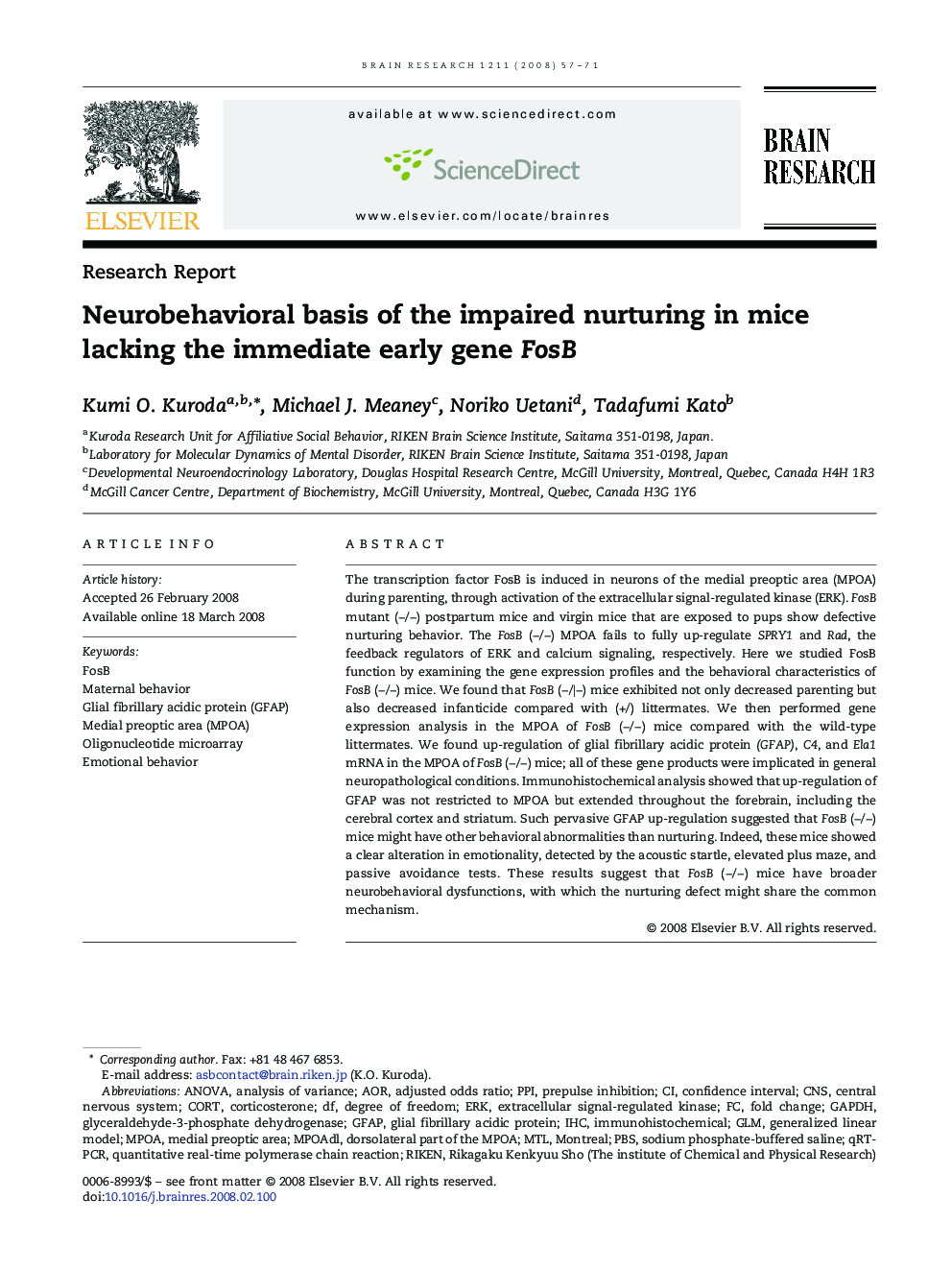| Article ID | Journal | Published Year | Pages | File Type |
|---|---|---|---|---|
| 4329683 | Brain Research | 2008 | 15 Pages |
Abstract
The transcription factor FosB is induced in neurons of the medial preoptic area (MPOA) during parenting, through activation of the extracellular signal-regulated kinase (ERK). FosB mutant (â/â) postpartum mice and virgin mice that are exposed to pups show defective nurturing behavior. The FosB (â/â) MPOA fails to fully up-regulate SPRY1 and Rad, the feedback regulators of ERK and calcium signaling, respectively. Here we studied FosB function by examining the gene expression profiles and the behavioral characteristics of FosB (â/â) mice. We found that FosB (â/|â) mice exhibited not only decreased parenting but also decreased infanticide compared with (+/) littermates. We then performed gene expression analysis in the MPOA of FosB (â/â) mice compared with the wild-type littermates. We found up-regulation of glial fibrillary acidic protein (GFAP), C4, and Ela1 mRNA in the MPOA of FosB (â/â) mice; all of these gene products were implicated in general neuropathological conditions. Immunohistochemical analysis showed that up-regulation of GFAP was not restricted to MPOA but extended throughout the forebrain, including the cerebral cortex and striatum. Such pervasive GFAP up-regulation suggested that FosB (â/â) mice might have other behavioral abnormalities than nurturing. Indeed, these mice showed a clear alteration in emotionality, detected by the acoustic startle, elevated plus maze, and passive avoidance tests. These results suggest that FosB (â/â) mice have broader neurobehavioral dysfunctions, with which the nurturing defect might share the common mechanism.
Keywords
Medial preoptic area (MPOA)MPOAPBSAORGLMGFAPGAPDHPPIqRT-PCRERKMTLIHCimmunohistochemicalanalysis of varianceANOVAfold changeCNSEmotional behaviorMaternal behaviorcentral nervous systemconfidence intervalFosBGeneralized linear modelmedial preoptic areaPrepulse inhibitionMontrealdegree of freedomOligonucleotide microarrayadjusted odds ratioquantitative real-time polymerase chain reactionGlial fibrillary acidic proteinGlial fibrillary acidic protein (GFAP)CORTCorticosteroneextracellular signal-regulated kinaseglyceraldehyde-3-phosphate dehydrogenase
Related Topics
Life Sciences
Neuroscience
Neuroscience (General)
Authors
Kumi O. Kuroda, Michael J. Meaney, Noriko Uetani, Tadafumi Kato,
